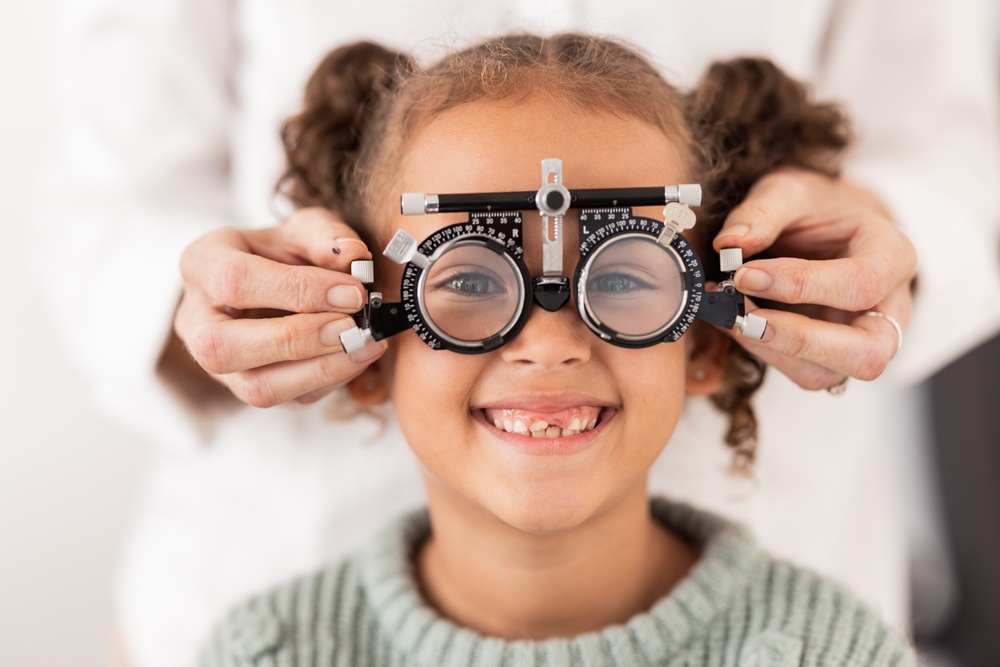
As a parent, your primary concern is to ensure that your children are healthy and happy. While you may pay attention to their physical health, it's equally important to focus on their eye health. Children use their eyes to explore the world, learn, and develop crucial skills. Therefore, any issues related to their eyes can not only affect their vision but also their cognitive and social development. By being proactive about your child's eye health, you can protect their vision and ensure they have a bright future.
The Impact of Vision on Child Development
Vision plays a pivotal role in a child's development. It aids in their ability to learn, read, write, play sports, and interact with others. From recognizing faces to navigating their environment, children heavily rely on their vision. Therefore, any eye health issues can significantly influence their developmental milestones.
Poor vision can limit a child's educational and social progress. For instance, if a child struggles with reading due to uncorrected vision problems, it could lead to academic challenges. Similarly, vision issues can hinder a child's physical abilities, affecting their performance in sports and other outdoor activities.
Additionally, children who have eye health issues often encounter difficulties interacting with their peers, which can affect their self-esteem and social development. Therefore, ensuring your child has good eye health is not just about preventing physical discomfort but also about safeguarding their overall growth and development.
Common Eye Conditions in Children
Children, due to their developing vision and exposure to various environments, are susceptible to several eye conditions. Understanding these conditions can help you identify potential issues early and seek timely intervention.
One of the most common eye conditions in children is refractive errors, which include myopia, hyperopia, and astigmatism. These conditions often manifest as difficulty in seeing clearly, squinting, and frequent headaches.
Another common condition is strabismus, more commonly known as cross-eyes. This condition occurs when the eyes do not align correctly and can lead to amblyopia if left untreated. Amblyopia, or "lazy eye," is a condition where one eye is used less than the other, leading to weaker vision in that eye.
Eye infections like conjunctivitis are also common in children due to their high exposure to germs at school and play. Early detection and treatment of these conditions are paramount to preserving your child's vision.
The Importance of Early Detection of Eye Problems
Early detection of eye problems in children is critical. It can mean the difference between lifelong vision issues and a relatively minor treatment plan. The sooner an eye condition is detected, the better the chances of effective treatment and preservation of vision.
Children often do not realize they have a vision problem because they assume that everyone sees the world the way they do. Therefore, it is up to parents and caregivers to identify any signs of eye problems. These can include squinting, tilting the head to see better, excessive blinking, rubbing eyes frequently, or difficulty in reading.
Also, remember that some eye conditions such as amblyopia are best treated when detected early. Delayed treatment can lead to permanent vision loss in the affected eye. Therefore, never ignore any signs or symptoms of eye problems in your child.
The Role of Regular Eye Exams in Maintaining Eye Health
Regular eye exams are a cornerstone of maintaining your child's eye health. These exams not only help detect vision problems early but also ensure that your child's eyes are developing correctly.
During an eye exam, the optometrist will evaluate your child's eye alignment, eye movement, and sharpness of vision. They will also assess the health of the internal and external structures of the eyes. This comprehensive evaluation allows them to diagnose any potential issues and recommend a treatment plan.
Ideally, children should have their first eye exam at six months of age, then at age three, and before starting school. After that, regular eye exams should be scheduled every two years if no vision correction is required. However, children who need glasses or contact lenses may need more frequent check-ups.
Preventing Eye Health Problems in Children
One of the most effective ways to prevent eye health issues in children is by limiting screen time. Excessive exposure to screens can lead to digital eye strain, causing symptoms like dry eyes, blurred vision, and headaches.
Teaching children about eye safety is also crucial. Make sure they wear protective eyewear while playing sports or engaging in activities that may pose a risk to their eyes. Regular hand washing can also prevent common eye infections.
Additionally, ensure that your child gets enough sleep. Lack of sleep can lead to eye fatigue and other vision problems. And of course, regular eye exams are vital in preventing and detecting eye health issues early.
Nutrition plays a significant role in maintaining your child's eye health. A balanced diet rich in fruits, vegetables, lean proteins, and whole grains can provide the necessary nutrients to support eye health.
Ensuring Your Child's Optimal Eye Health
Maintaining your child's eye health is an essential part of their overall well-being. Understanding the impact of vision on their development, recognizing common eye conditions, realizing the importance of early detection, embracing the role of regular eye exams, preventing eye health problems, and promoting good nutrition can all contribute to preserving and enhancing your child's eye health.
For more information on how to maintain eye health in children, visit Albright Eyecare at our office in New Braunfels, Texas. Call (830) 271-4900 to schedule an appointment today.











